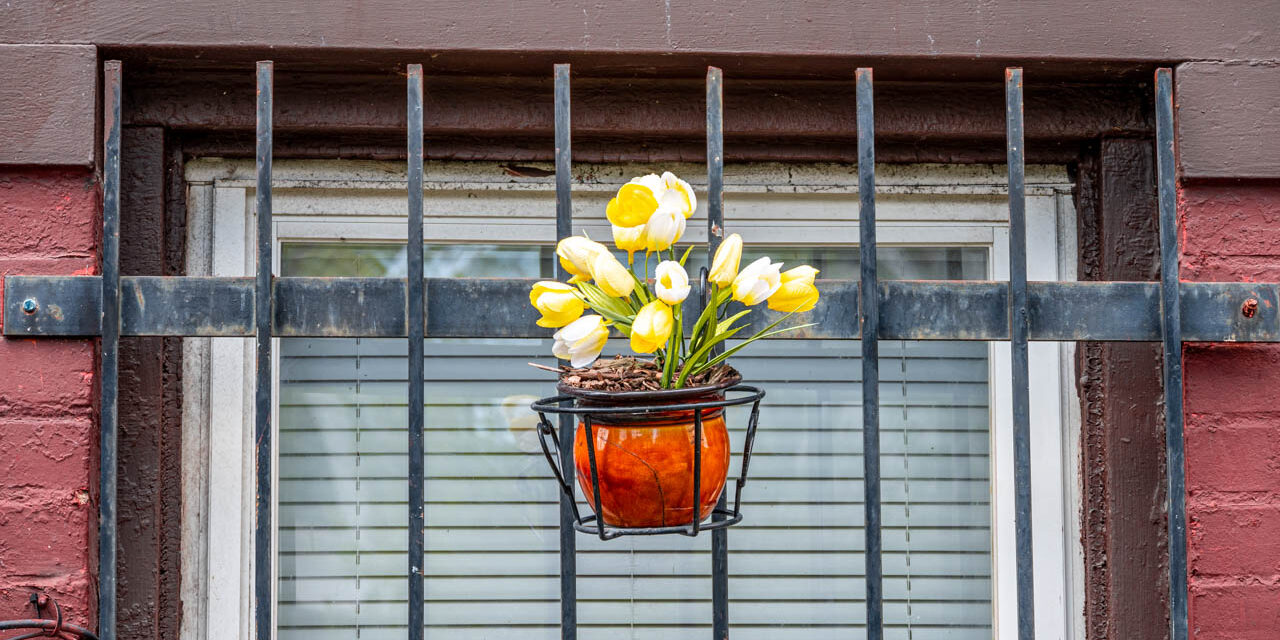Good morning, we’re halfway through the week already! Where does the time go? It’s Wednesday, BTW.
I’m a big fan of podcasts. I spend a lot of time doing sustained cardio workouts on the bike and the road. I do listen to music sometimes when I work out. But at some point it struck me: I could be putting this time to better use – perhaps by getting educated about things I know nothing about.
Hence, I started listening to podcasts like Ologies (long-form science interviews conducted by wunderkind Alie Ward for lay people), This American Life (if you don’t know about the radio treasure that is Ira Glass, I can’t help you), and Hidden Brain (so amazing to find out why we do what we do).
I’m always on hunt for new and interesting podcasts to expand my repertoire. I am a fan of Freakonomics, and was introduced through that to an offshoot called The Economics of Everyday Things, which is exactly what it sounds like – a deep-ish dive into the economics and origin stories of some of the most mundane items you probably don’t think about all that much.
Recent episodes have focused on a wide variety of subjects, including bail bonds, storage units, movie sound effects (this one was particularly interesting and surprising, I thought), cemeteries, pet movers, sex scenes and dead bodies (cadavers). Also, I listened to one about the economics of pizza boxes a while back that was surprisingly fascinating.
One thing that I don’t see here – maybe we should write to the host? – is the economics and back story of something I enjoy regularly, but don’t think too terribly hard about: Chocolate chips.
These days, chips come in a wide variety of forms – milk, dark, and white chocolate; semi-sweet; peanut butter; cinnamon; mint; sugar-free; butterscotch; espresso; funfetti; Heath…the list goes on and on. Many of these are produced by the premier chip-maker, Nestle, which, according to the interwebs, is where the whole chip concept originated to begin with.
It seems that the creation of chocolate chip cookies and the chips themselves go hand-in-hand, which makes sense, since you really can’t have one without the other. As the story goes, the cookies were invented in 1937 by Ruth Graves Wakefield at the Toll House Inn in Whitman, MA, who decided on a whim to cut up pieces of a semi-sweet Nestle bar into her otherwise standard cookie recipe.
In 1939, based on the wild success of her cookie invention, Wakefield reached an agreement with Nestle to add her recipe to their chocolate bar’s packaging in exchange for a lifetime supply of chocolate. She never did make any money on the recipe, though, which seems like a serious crime to me.
The company at first sold a small tool intended to help chop the chocolate along with its bars. By 1941, it started selling the chocolate in “chip” form, though at the time they were called “morsels”. (Apparently, there is actually a difference).
The rest, as they say, is history. This is, of course, where Toll House cookies got their name. That recipe is still featured on the package (or some of them, anyway) to this day.
There are some wrinkles to the Wakefield origin story – not the least of which is that the word “chip” to refer to a sweet little something – in this case, candy that wasn’t made from chocolate – dates back considerably further than the 1930s.
Today, if you hadn’t already guessed, is National Chocolate Chip Day, which is NOT to be confused with National Chocolate Chip Cookie Day (Aug. 4) or National Cookie Day (Dec. 4).
I hope you got outside yesterday because it was GLORIOUS. And today will be….not that. Rain is in the forecast for the morning, tapering off to showers and clouds in the afternoon. The temperature will struggle to hit 70 degrees.
In the headlines…
The Biden administration has told key lawmakers it would send more than $1 billion in additional arms and ammunition to Israel, three congressional aides said. But it was not immediately known how soon the weapons would be delivered.
It’s the first arms shipment to Israel to be revealed since the administration put another arms transfer, consisting of 3,500 bombs of up to 2,000 pounds each, on hold this month.
The notification of the sale, which would include new tactical vehicles and ammunition, comes as Biden has withheld a shipment of bombs to Israel, hoping to prevent U.S.-made weapons from being used in a potential invasion of the southern Gaza city of Rafah.
Biden is at a crossroads on America’s military support for Israel in its war against Hamas that could have profound and lasting effects on his presidency and the relationship with the Mideast country.
Biden announced a sharp increase in tariffs on some Chinese imports, including EVs, solar cells, semiconductors and advanced batteries, hoping to protect strategic US industries from a new wave of competitors he says are unfairly subsidized by Beijing.
The president also officially endorsed maintaining tariffs on more than $300 billion worth of Chinese goods that were put in place by President Donald Trump. Biden criticized those tariffs as taxes on American consumers during his 2020 run for the White House.
The new tariff rates – which range from 100% on electric vehicles, to 50% for solar components, to 25% for all other sectors – will take place over the next two years.
The moves, which come amid rising tensions between the U.S. and China, are designed to protect American industries in clean energy that the administration has targeted with major investments to try to catch up with China.
Automakers in the United States and their supporters welcomed Biden’s tariffs, saying they would protect domestic manufacturing and jobs from cheap Chinese vehicles.
After months of slow Russian ground advances and technological leaps in countering US-provided arms, the Biden administration is more concerned that President Vladimir Putin is gathering enough momentum to change the trajectory of the war.
During a visit to Kyiv, Secretary of State Antony Blinken, a longtime guitarist, played Neil Young’s “Rockin’ in the Free World” with a local band at a bar in a show of support for Ukraine.
Jason Carter, former President Jimmy Carter’s grandson, gave an update on his grandfather’s health, saying that he’s “coming to the end.”
Jimmy Carter, 99, entered hospice care in February 2023. Though hospice care is often associated with the immediate end of a person’s life, it’s not always a short-term option.
Jerome H. Powell, the Federal Reserve chair, reiterated that policymakers were poised to hold interest rates steady at a high level as they waited for evidence that inflation is slowing further.
A former Obama campaign worker and her wife were killed in a horrific car wreck in Southern California last week.
Michael Cohen faced a fierce cross-examination yesterday afternoon in the criminal trial of Donald Trump, as the defense tried to tear down the prosecution’s key witness.
Cohen was repeatedly attacked by Trump’s attorney, Todd Blanche, who suggested he was being evasive on the stand, had selective amnesia and was a jilted former employee profiting off his hatred of the former president.
Speaking to cameras outside the courtroom after the trial wrapped for the day, Trump expressed deep frustration again about the judge’s gag order, saying, “I think it’s totally unconstitutional.”
Outside the Manhattan courthouse where Trump is being tried on criminal charges, House Speaker Mike Johnson attacked a key witness who linked the former president to a plan to cover up hush money paid to a porn star.
Johnson, a devout Southern Baptist who has publicly discussed his own efforts to avoid viewing online pornography, isn’t the first elected Republican to put aside moral qualms to reap the benefits of closeness with Trump.
It was a remarkable moment in modern US politics: The House speaker, second in line to the presidency, turning his Republican Party against the federal and state legal systems that are foundational to the U.S. government and a cornerstone of democracy.
Former Vice President Mike Pence sought public financing for his failed presidential primary campaign, a highly unusual move that if successful would make him the first Republican in more than a decade to receive such funds, according to FEC documents.
Gov. Kathy Hochul is jetting overseas on the taxpayers’ dime this week to attend climate and business events in Italy and Ireland.
New York’s cannabis industry will not be fixed “overnight” due, in part, to prior mismanagement of the state Office of Cannabis Management.
Pursuit, a nonprofit that trains low-income workers to become software engineers, is urging New York legislators to pass a new regulatory model for jobs programs.
Labor unions, corporate whistleblowers and — in some cases — individual workers would be able to pursue enforcement of wage theft claims under legislation pushed by Democrats and workers’ rights groups this session.
It’s been three years since New York enacted a law that required hospitals to develop plans for safe levels of staff relative to the patients in their care, but nurses say it isn’t being enforced.
For those trying to get out of an automated ticket for passing a school bus, it just got a lot harder.
Former Gov. George Pataki held a Manhattan gala Monday that raised $250,000 for charter schools in New York — 25 years after approving a landmark law that paved the way for them.
State lawmakers expressed concern over potentially improper benefits to family members from DocGo’s $432 million, no-bid contract with New York City to oversee the relocation of migrants upstate. State oversight officials, meanwhile, avoided weighing in.
Mayor Eric Adams suggested migrants should be hired to fill the city’s lifeguard shortage — because “they’re excellent swimmers.”
Adams also referred to other in-demand professions, including food service work and nursing, that migrants could be fast-tracked to work in.
Adams announced that the city would take control of more than 100 acres of the Brooklyn waterfront and invest $80 million in improvements.
Adams’ administration is planning to restructure the Police Academy to consolidate training for several agencies outside the NYPD’s purview, including the correction, sanitation, probation and parks departments.
Dozens of community composting sites across New York City are at risk of shutting down this weekend due to Adams’ budget cuts, organizers said.
A new report from New York University claims that Adams and Schools Chancellor David Banks have abandoned the cause of school integration and, in some cases, even moved the city backward.
The city health department is set to cut $5.3 million in spending on HIV programs as part of its effort to comply with Adams’ recent directives to reduce the agency’s budget by $75 million overall in fiscal year 2025, which starts in July.
Congestion pricing revenue would go to pay for subway infrastructure, like modernizing signals that date back to the 1930s, if the program survives legal challenges.
The MTA executive in charge of running New York City’s subways and buses is slated to leave his job to become CEO of the Massachusetts Port Authority, according to people with knowledge of the decision.
Organizers of a 22-year-old program giving students living in homeless shelters new backpacks for the start of school say city budget cuts could force them to reduce supplies as the number of homeless children has ballooned.
Dozens of anti-Israel student protesters took over CUNY Graduate Center’s library Tuesday last and “renamed” it after a university in Gaza destroyed by airstrikes.
The National Labor Relations Board has issued a complaint against the New York City restaurant group headed by the acclaimed chef Ignacio Mattos, saying it engaged in illegal practices to dissuade workers from forming a union at Lodi, in Rockefeller Center.
The city’s July 4 fireworks are moving back to the Hudson River for the first time in a decade – and the change has sparks flying on both sides of Manhattan.
The Long Island Rail Road has finally received the last of its M9 electric trains — deemed “unicorns” because they’re rare — about five years after they were all originally scheduled to hit the rails.
Hudson Valley Community College has retained outside investigators to look into an allegation of sexual harassment filed against the school’s president by a college employee, two county officials confirmed.
Hochul has awarded the Saratoga County Airport $27 million to help with improvements that include a new terminal, an adjoining aircraft hangar and clean energy upgrades.
A state-of-the-art aquatics center with a projected $41.7 million price tag will soon be part of the downtown landscape in Schenectady.
While the upper Midwest is getting smoked out by Canadian wildfires this week, forecasts show New York will likely be spared.
A farmer’s market, held for the first time last year, will return outside the MVP Arena in July, now on a weekly basis instead of monthly.
Two people stole $200,000 from an 86-year-old state pensioner over four years and spent the money on their personal entertainment while leaving him to live in squalor and leaving his bills unpaid, state and Rensselaer County officials said.
The Presbyterian-United Church of Christ in Saratoga Spring said it has been recognized by its two denominations for significant environmental achievements over the past five years.
A $25.4 million bond issue goes to Brunswick Central School District voters who will consider the proposal to upgrade aging school buildings and security, improve athletic fields, and meet the needs of students and the community.
Sage, an extravagantly coifed miniature poodle with a certain winsome mystery about her, won the 148th annual Westminster Kennel Club Dog Show, prevailing over a tough field of competitors.
Photo credit: George Fazio.





